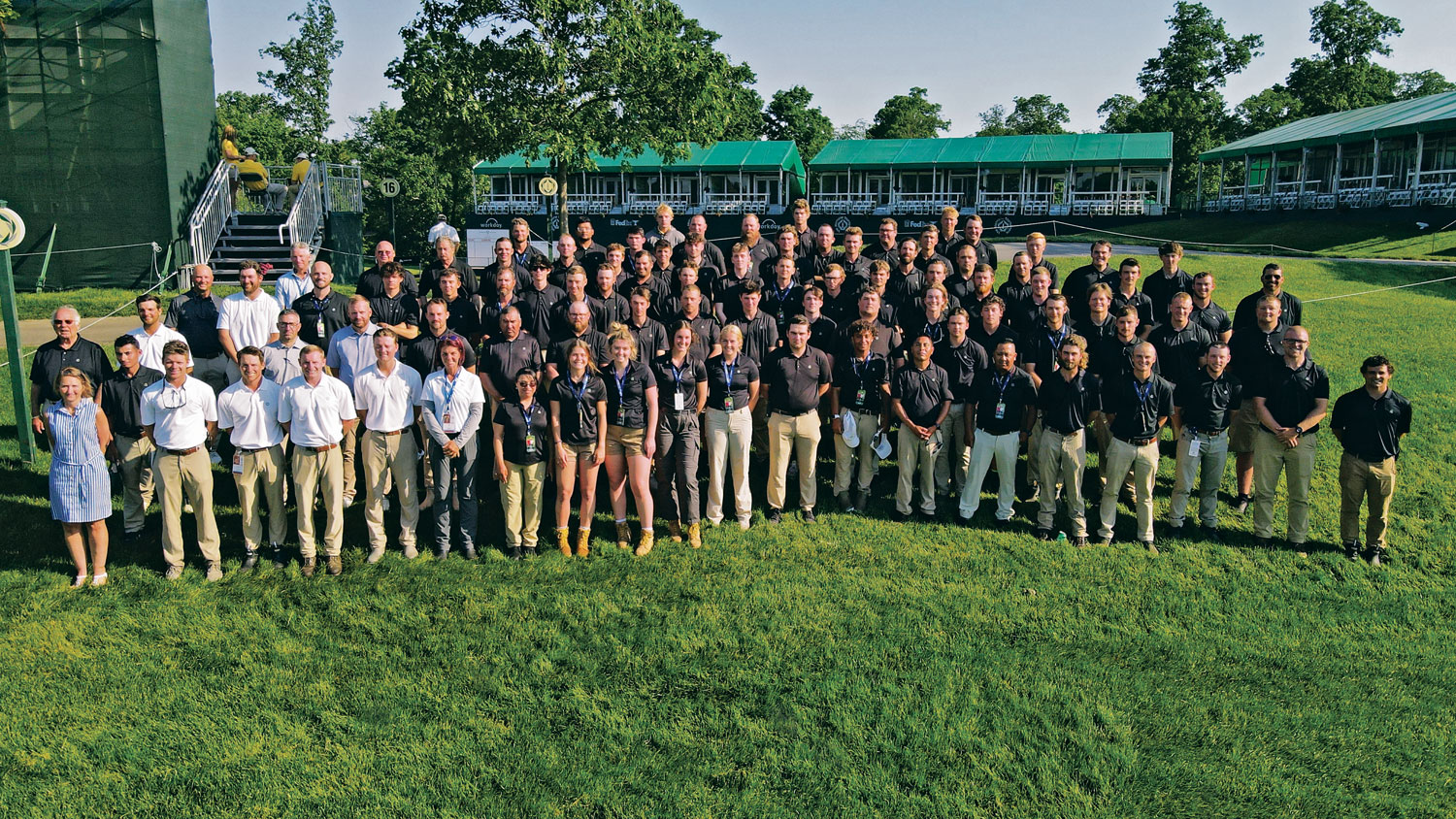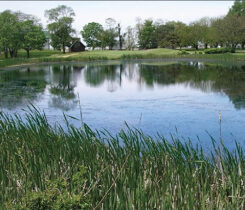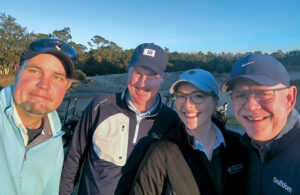Chad Mark shares the ins and outs of PGA Tour’s Memorial Tournament

Graphic: Golfdom Staff
As Chad Mark, director of grounds operations, Muirfield Village GC, and his team of superintendents prepare for one of the PGA Tour’s most popular tournaments — the Memorial Tournament — they must overcome one considerable challenge in particular: Mother Nature.
The tournament is held in May every year, a month in which the weather can be quite unpredictable, as spring tends to arrive at different times annually in Dublin, Ohio. Consequently, impacts include the turf’s growing tendencies and the timing of applications. Not to mention, the crew must bear in mind the timing for the event’s structure construction.
“Onboarding staff members is a critical task each year too since the Memorial Tournament is held roughly two weeks after our seasonal employees join our team,” Mark says. “Our club opens to the membership in April and our members and guests are able to play the golf course all the way through advance week.”
Mark and his team also must brace themselves for the tournament’s aftermath on the course, as it attracts thousands of fans.
“We close the course for four days after the tournament to recover and allow the ‘in play’ areas to recover,” he adds. “Structures outside the ropes are removed within four to six weeks after the Memorial Tournament concludes. Our staff members will then recover those areas as they become available to them.”

Muirfield Village Golf Club Director of Grounds Operations Chad Mark says volunteers play a crucial part of helping his crew during tournament week every year. (Courtesy of Brian Laurent, Superintendent Network)
Reflecting on a milestone renovation
Mark, employed as director of grounds operations at the club since 2017, is a 20-year veteran of the golf course maintenance industry. In that time, he says he hadn’t witnessed a renovation as considerable as Muirfield’s renovation during the summer of 2020.
Renovations included total rebuilds of greens, practice greens and bunkers; regrassing of fairways with bentgrass, resurfaced tee boxes and a new irrigation system. Muirfield’s greens also received Precision-Aire HVAC units.
“The primary construction work was completed by LaBar Golf Renovations, and irrigation work was performed by Leibold Irrigation,” Mark says. “The renovation and design changes have been well received. And they’ve made our operation more efficient by giving our team the infrastructure it needs to handle the demands of the PGA Tour and our membership more effectively.”

As one of the PGA Tour’s most popular events, the team at Muirfield Village take extra care to help turf in high-traffic areas recover after the tournament. (Courtesy of Brian Laurent, Superintendent Network)
Looking ahead — and back
As Mark and his team prepare for this year’s tournament, irrigation won’t be a hot-button item for them in the weeks preceding it. Water management, however, will be the crew’s agronomic programs’ primary factor.
“We use Precision moisture meters, in-ground sensors and weather station data to make informed decisions about adding water to the golf course, which we do sparingly throughout the year,” Mark explains.
During the tournament itself, Mark can’t stress the significance of volunteers enough. They not only help his staff members and him meet the PGA Tour’s goals for the tournament, but Jack Nicklaus’s goals as well, as the legendary 18-time major champion founded the event and continues to host it to this day.
“Simply put, without our volunteers, we wouldn’t be able to achieve the tasks we have scheduled every morning in a timely manner,” he emphasizes. “On another note, it is always an incredible networking opportunity for our staff and volunteers, as many lifelong friendships are formed every year throughout the week of the tournament.”
While reflecting on his past 20 years in the industry, along with the experiences he’s gained at Muirfield Village, Mark advises superintendents at other courses to always have detailed plans with regard to their agronomic practices.
In addition, he believes superintendents should discuss contingencies with one another in case plans must pivot in an entirely different direction. For instance, Mark’s team members begin their agronomic planning process for the coming year in January, enabling them to remove as many last-minute tasks as possible down the road.
“In particular, when you’re hosting a tournament, you don’t always have to vet agronomic tasks either,” Mark says. “Those are usually the easier aspects of hosting. More challenging aspects — such as finding host hotels, planning meals, ordering uniforms and organizing the tournament’s schedule — are paramount to the tournament’s success. Ensure you’re prepared for anything to occur, and you’ll be able to overcome any challenge you encounter.”












